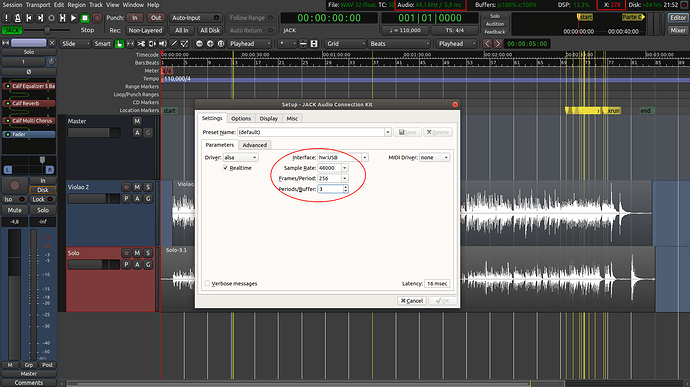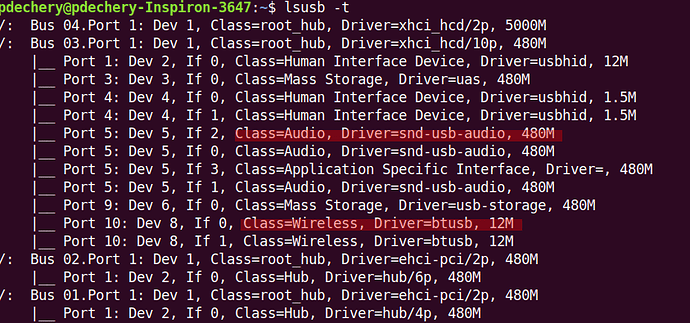Hi there,
I’ve been using Ardour for two years now, until this day without troubles.
Today, however, I’m facing a very strange issue which is making the program unusable: Xruns keeps coming out of nowhere, be I’m recording, listening to tracks or even doing nothing.
Before I continue, I should inform that I’m running Ardour in Ubuntu 18.04 with 8GB of RAM. I use Jack and have a Scarlett 2i2 audio interface.
In Jack, my settings are:
Sample Rate: 44100
Frames/Period: 256
Periods/Buffer: 2
I’ve never had this problem before since I work with this DAW, so I wonder how can this be a settings related issue.
Also, after the Xruns began to appear, the playhead started to behave erraticly, stopping an moving backwards randomly.
The first place I went to seek any information was Jack’s logs. I’ve found these messages there:
21:52:55.820 XRUN callback (795).
Sun Aug 25 21:52:55 2019: ERROR: JackEngine::XRun: client = ardour was not finished, state = Running
Sun Aug 25 21:52:55 2019: ERROR: JackAudioDriver::ProcessGraphAsyncMaster: Process error
When I went back to Ardour, I’ve noticed that the “Audio” information in the status bar didn’t match Jack’s settings. Shouldn’t it?
Thanks for reading and I’m hoping anyone can clarify this to me.
Pierre



